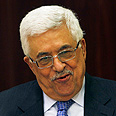

The decision to move up the Knesset elections will affect not only Israel's citizens but the Palestinian Authority as well.
Since Benjamin Netanyahu's early elections announcement Tuesday, Palestinian analysts have been trying to explain the move and its consequences. All reached the same conclusion – nothing will change.
Related stories:
- Olmert considers political comeback
- PM prefers January 15 elections
- Netanyahu, Peres discuss early elections
The issue may not have gotten the main headlines in the PA's most popular dailies but appeared in all the front pages. Meanwhile, Palestinian officials stressed the matter was an internal Israeli affair saying they have no interest in getting involved in the campaign.
Nevertheless, chief Palestinian negotiator Saeb Erekat expressed concern that the Palestinians will end up paying the cost when Israel's policy will become more aggressive. "I hope that the Israeli parties' campaign will not become a contest for who expands more settlements," he said.
Erekat said that the Palestinians are used to Israeli governments avoiding the peace process. While he refused to comment on the elections, he did not miss the opportunity to criticize the outgoing cabinet.
"Given the choice between settlement and peace, this government chose settlement. The Netanyahu administration worked not only to destroy the peace process but to write out what has already been agreed on in past negotiations."
Palestinian journalists also touched on the subject with some degree of optimism. Nasser al-Laham, chief editor of the Maan news agency, said in an editorial that no real change is expected.
He advised his readers not to get their hopes up seeing as the Israeli public has been "hypnotized" and estimated that Netanyahu will return to the prime minister's seat.
He also predicted that Avgidor Lieberman's Yisrael Beiteinu will emerge as the second largest party and that the leftist, Arab and haredi parties will each maintain their electoral power. "The Israeli public is becoming even more set in its mind which prevents it from enjoying the choice and versatility."
Former Fatah man and ex-minister Dr. Sufian Abu Zaida analyzed the motives for the decision to move up the elections and claimed the move was entirely predictable.
"Unlike previous election campaigns, he explained, the Palestinian issue will not be in the forefront and will take a backseat to Iran and the economy.
He estimated, much like Israeli analysts, that Netanyahu chose to hold early elections knowing he had no real rival. Nevertheless, Abu Zaida pointed to three possible scenarios: Likud primaries resulting in an ultra-right list, an Ehud Olmert political comeback and Arie Deri's return to Shas.
- Receive Ynetnews updates
directly to your desktop















